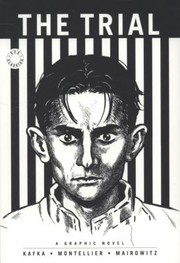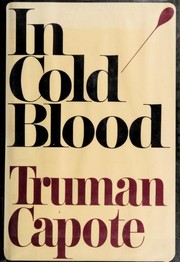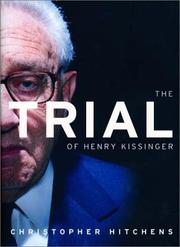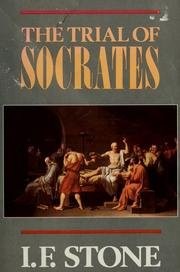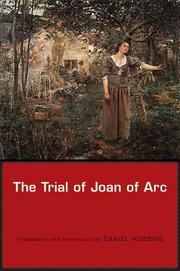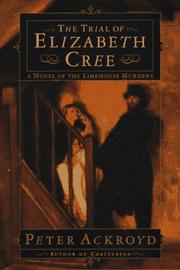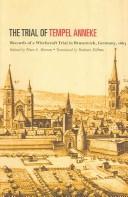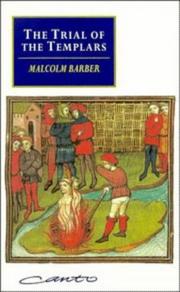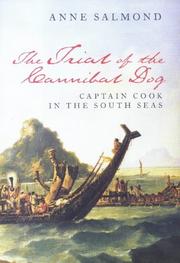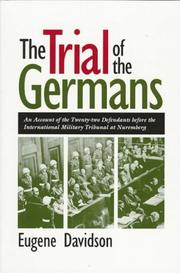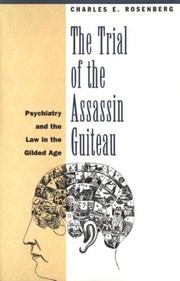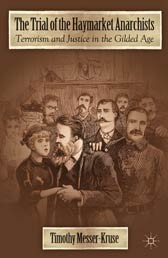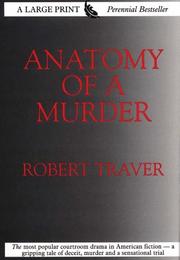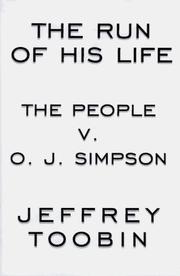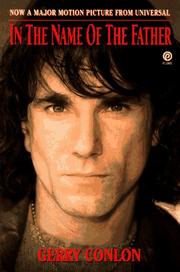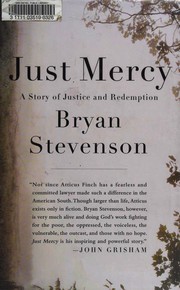Are you fascinated by the drama, tension, and moral dilemmas that unfold within the walls of a courtroom? Look no further than this curated list of the 20 best books about trials. Whether you’re a legal buff or simply enjoy a gripping courtroom drama, these trials books will keep you on the edge of your seat with their riveting storytelling and thought-provoking themes. From classic courtroom dramas to modern legal thrillers, there’s something for every book on trials enthusiast on this list.
Contents
- 1 20 Best Books About Trials
- 2 The Trial
- 3 To Kill a Mockingbird
- 4 The Crucible
- 5 In Cold Blood
- 6 The Stranger
- 7 The Trial of Henry Kissinger
- 8 The Trial of Socrates
- 9 The Trial of Joan of Arc
- 10 The Trial of Elizabeth Cree
- 11 The Trial of Tempel Anneke
- 12 The Trial of the Templars
- 13 The Trial of the Cannibal Dog
- 14 The Trial of the Germans
- 15 The Trial of the Assassin Guiteau
- 16 The Trial of the Haymarket Anarchists
- 17 Anatomy of a Murder
- 18 A Time to Kill
- 19 The Run of His Life: The People v. O.J. Simpson
- 20 In the Name of the Father
- 21 Just Mercy
- 22 Conclusion
- 23
- 24 Discover the Best Languages Books in the 2024 Updated Edition
- 25 Famous Court Cases Books: A Curated 2024 Updated List
- 26 Top 20 Best Books on Reality:2024 Edition
20 Best Books About Trials
The Trial
by Franz Kafka
The Trial by Franz Kafka is a haunting and enigmatic novel that delves into the surreal and nightmarish world of the legal system. The story follows Josef K., a bank employee who is arrested and prosecuted by a mysterious and absurd court for a crime that is never revealed to him. As he navigates through a labyrinth of bureaucracy, he encounters a series of bizarre and absurd characters, and his futile attempts to understand and defend himself against the opaque and inscrutable legal proceedings only serve to deepen the sense of alienation and hopelessness. Kafka’s exploration of the individual’s struggle against an incomprehensible and oppressive system has made The Trial a timeless and thought-provoking classic. This trials book is a powerful and disquieting examination of the absurdity and arbitrariness of justice.
To Kill a Mockingbird
by Harper Lee
To Kill a Mockingbird is a timeless classic that delves into the complexities of justice, morality, and racial prejudice in the American South. Set in the 1930s, the story is narrated by Scout Finch, a young girl coming of age in a small town. The novel follows her father, Atticus Finch, a principled lawyer who defends a black man falsely accused of assaulting a white woman. Through the trial, the town’s deeply ingrained racism and social injustice are brought to light, challenging readers to confront their own beliefs and biases. As Scout and her brother, Jem, navigate the harsh realities of their community, they learn valuable lessons about empathy, courage, and the importance of standing up for what is right. To Kill a Mockingbird is a powerful and thought-provoking book about trials that continues to resonate with readers of all ages.
The Crucible
by Arthur Miller
The Crucible by Arthur Miller is a captivating book about trials that delves into the hysteria and paranoia that fueled the Salem Witch Trials in the 17th century. Through the story of John Proctor and his wife Elizabeth, Miller explores the destructive power of mass hysteria and the consequences of false accusations. The play serves as an allegory for the anti-communist Red Scare in America during the 1950s, drawing parallels between the Salem witch hunts and the government’s persecution of suspected communists. The Crucible is a powerful and thought-provoking exploration of the human capacity for both good and evil, and the devastating effects of fear and suspicion. This timeless book on trials continues to resonate with audiences, reminding us of the dangers of unchecked power and the importance of standing up for justice.
In Cold Blood
by Truman Capote
In Cold Blood by Truman Capote is a groundbreaking non-fiction novel that delves into the chilling true story of the Clutter family murders in Holcomb, Kansas. Capote meticulously reconstructs the events leading up to and following the brutal killings, as well as the capture, trial, and execution of the perpetrators. This gripping narrative combines elements of a true crime story and a psychological thriller, providing a haunting portrayal of the impact of the murders on the small community. Through his vivid and detailed storytelling, Capote offers a profound exploration of the human condition, the nature of evil, and the complexities of justice. In Cold Blood is a compelling and thought-provoking book on trials that continues to captivate readers with its masterful blend of fact and fiction, making it a timeless classic in the genre of true crime literature.
The Stranger
by Albert Camus
The Stranger by Albert Camus is a thought-provoking novel that delves into the existential crisis of its protagonist, Meursault. The story follows Meursault’s detached and indifferent attitude towards life, leading to a series of events that culminate in his trial for a shocking crime. As he navigates through the judicial system, the book examines themes of isolation, absurdity, and the meaning of existence. Through Meursault’s unapologetic demeanor and the exploration of his inner turmoil, Camus offers a powerful commentary on the human condition. This trials book challenges readers to question societal norms and conventions, while also prompting introspection about the nature of morality and justice. The Stranger is a captivating and thought-provoking read that will leave a lasting impression on anyone who delves into its pages.
The Trial of Henry Kissinger
by Christopher Hitchens
The Trial of Henry Kissinger by Christopher Hitchens is a captivating book about trials that delves into the controversial actions of the former U.S. Secretary of State. Hitchens meticulously presents a case against Kissinger, accusing him of war crimes and crimes against humanity. Through extensive research and compelling arguments, the author builds a compelling case, calling for trials and justice for the alleged victims of Kissinger’s policies. Hitchens’ writing is sharp and incisive, challenging readers to reexamine their views on international diplomacy and the accountability of powerful figures. The book on trials is a thought-provoking exploration of moral and legal implications, shedding light on the complexities of global politics and the pursuit of justice.
The Trial of Socrates
by I.F. Stone
The Trial of Socrates by I.F. Stone is a captivating book about trials that delves into the controversial trial of the ancient Greek philosopher, Socrates. Stone meticulously examines the political and social climate of Athens during Socrates’ trial, providing a thought-provoking analysis of the events that led to his condemnation. Through meticulous research and compelling storytelling, Stone paints a vivid picture of the courtroom drama and the philosophical clash that ultimately led to Socrates’ tragic fate. This trials book offers a fascinating exploration of the power dynamics, the pursuit of justice, and the complexities of free speech in a democratic society. With its engaging narrative and insightful commentary, The Trial of Socrates is a must-read for history enthusiasts, philosophy lovers, and anyone intrigued by the intricacies of ancient trials.
The Trial of Joan of Arc
by Daniel Hobbins
The Trial of Joan of Arc by Daniel Hobbins is a captivating book about trials that delves into the dramatic legal proceedings of one of history’s most famous cases. Hobbins meticulously examines the trial of the iconic French heroine, Joan of Arc, shedding light on the political, religious, and legal complexities that surrounded her prosecution. Through detailed analysis and compelling storytelling, the author provides a fascinating exploration of the trials and tribulations faced by Joan of Arc, offering a fresh perspective on this enduringly intriguing historical figure. Hobbins’ book on trials is a must-read for anyone interested in legal history, medieval Europe, or the enigmatic tale of Joan of Arc’s tumultuous journey through the trials that defined her legacy.
The Trial of Elizabeth Cree
by Peter Ackroyd
The Trial of Elizabeth Cree by Peter Ackroyd is a gripping historical fiction novel set in Victorian London. This riveting book about trials follows the sensational trial of Elizabeth Cree, a young woman accused of poisoning her husband. As the trial unfolds, the reader is taken on a journey through the dark and seedy underbelly of London’s criminal justice system, filled with corruption, secrets, and intrigue. Ackroyd masterfully weaves together the suspense of a murder mystery with the drama of a courtroom book on trials, keeping readers on the edge of their seats until the very end. With vivid descriptions and intricately developed characters, The Trial of Elizabeth Cree is a must-read for anyone who enjoys historical fiction and trials books.
The Trial of Tempel Anneke
by Peter A. Morton
The Trial of Tempel Anneke by Peter A. Morton is a captivating book about an infamous witch trial that took place in Germany in the 17th century. This meticulously researched and engagingly written book on trials delves into the details of the trial of Tempel Anneke, a woman accused of witchcraft, and the social and religious dynamics that led to her persecution. Through vivid storytelling and historical analysis, Morton brings to life the courtroom drama, the superstitions of the time, and the personal struggles of the accused. This gripping trials book offers a fascinating glimpse into the legal and social processes of the early modern period, making it a must-read for anyone interested in history, law, and the human experience.
The Trial of the Templars
by Malcolm Barber
The Trial of the Templars by Malcolm Barber is a compelling book on trials that delves into the dramatic and controversial legal proceedings against the Knights Templar in the 14th century. Barber meticulously examines the complex web of political intrigue, religious fervor, and accusations of heresy that led to the downfall of this powerful and enigmatic order. Drawing on a wealth of primary sources, including the Templars’ own testimony, Barber provides a gripping account of the trials and the impact they had on the course of European history. This book about trials offers a fascinating insight into the workings of medieval justice and the power struggles of the era. It is a must-read for anyone interested in the enigmatic world of the Templars and the tumultuous trials book that sealed their fate.
The Trial of the Cannibal Dog
by Anne Salmond
The Trial of the Cannibal Dog by Anne Salmond is a captivating exploration of the encounters between Europeans and the Maori people of New Zealand. This thought-provoking book delves into the complex cultural clashes and misunderstandings that occurred during the early meetings, leading to a trial that would shape the course of history. Through meticulous research and engaging storytelling, Salmond presents a vivid account of the events surrounding the trial, shedding light on the tensions, power dynamics, and ethical dilemmas at play. Blending anthropology, history, and legal discourse, this trials book offers a compelling examination of justice, colonialism, and the clash of cultures. With its rich detail and compelling narrative, The Trial of the Cannibal Dog is a must-read for anyone interested in the complexities of cross-cultural encounters and the impact of trials on society.
The Trial of the Germans
by Eugene Davidson
The Trial of the Germans by Eugene Davidson is a compelling book about the Nuremberg Trials, which were a series of military tribunals held after World War II to prosecute prominent leaders of Nazi Germany. Davidson provides a detailed account of the legal proceedings, the evidence presented, and the moral and ethical dilemmas faced by the judges and prosecutors. The book offers a fascinating insight into the complexities of the trials, the role of international law, and the pursuit of justice in the aftermath of one of the darkest chapters in human history. This trials book is a gripping and thought-provoking read that delves deep into the legal and moral implications of holding individuals accountable for war crimes and crimes against humanity.
The Trial of the Assassin Guiteau
by Charles E. Rosenberg
The Trial of the Assassin Guiteau by Charles E. Rosenberg is a captivating book on trials that delves into the gripping legal proceedings surrounding the assassination of President James A. Garfield. Rosenberg provides a detailed account of the trial of Charles Guiteau, the man responsible for the heinous act. The book offers a fascinating exploration of the courtroom drama, the strategies employed by the prosecution and defense, and the public’s reaction to the trial. Rosenberg’s insightful analysis of the legal proceedings and the societal impact of the case makes this trials book a compelling read for history enthusiasts, legal scholars, and anyone intrigued by the intersection of law and public opinion.
The Trial of the Haymarket Anarchists
by Timothy Messer-Kruse
The Trial of the Haymarket Anarchists is a compelling book on trials that delves into the notorious Haymarket Affair of 1886. Author Timothy Messer-Kruse provides a deep analysis of the trial of eight anarchists who were accused of inciting a riot that resulted in the death of several police officers. Through meticulous research, he challenges the traditional narrative of the trial, uncovering overlooked evidence and shedding new light on the events that transpired. Messer-Kruse’s thought-provoking account offers a fresh perspective on this pivotal moment in American history, exploring the complexities of justice, politics, and labor movements in the late 19th century. This captivating trials book is a must-read for anyone interested in the intersection of law, politics, and social justice.
Anatomy of a Murder
by Robert Traver
Anatomy of a Murder, penned by Robert Traver, is a gripping book about trials that delves into the complexities of the legal system. Set in a small town in Michigan, the story revolves around a sensational murder trial and the intense courtroom drama that unfolds as the defense attorney navigates through the intricacies of the case. Traver, a former Michigan Supreme Court justice, brings his vast knowledge of the law to the forefront, painting a vivid and authentic picture of the legal proceedings. The book offers a fascinating exploration of the human psyche, morality, and the pursuit of justice, making it a compelling read for anyone interested in a thought-provoking trials book.
A Time to Kill
by John Grisham
A Time to Kill is a gripping legal thriller by John Grisham that delves into the intense world of courtroom drama. Set in a small town in Mississippi, the story follows a young lawyer, Jake Brigance, as he defends a black man who has taken the law into his own hands after his daughter is brutally assaulted by two white men. The novel explores themes of racial tension, justice, and the complexities of the legal system. Grisham masterfully weaves together a thrilling narrative that keeps readers on the edge of their seats as the trial unfolds. A Time to Kill is a riveting and thought-provoking book about trials, prejudice, and the pursuit of justice.
The Run of His Life: The People v. O.J. Simpson
by Jeffrey Toobin
The Run of His Life: The People v. O.J. Simpson by Jeffrey Toobin is a gripping book about trials that delves into the infamous O.J. Simpson murder case. Toobin, a legal expert, provides a comprehensive overview of the trial that captivated the nation in the 1990s. With a keen eye for detail and a deep understanding of the legal system, Toobin offers a compelling narrative that explores the complexities of the case, the strategies of the legal teams, and the social and racial dynamics at play. Through meticulous research and insightful analysis, Toobin provides readers with a behind-the-scenes look at one of the most high-profile trials book in American history. The Run of His Life is a must-read for anyone interested in true crime, legal drama, or the intersection of race and justice in the United States.
In the Name of the Father
by Gerry Conlon
In the Name of the Father by Gerry Conlon is a gripping book about trials that tells the true story of Conlon’s wrongful conviction for an IRA bombing in 1974. The book takes readers on a harrowing journey through Conlon’s arrest, interrogation, and trial, showcasing the injustices and flaws in the legal system that led to his conviction. Conlon’s powerful narrative sheds light on the devastating impact of wrongful imprisonment and the fight for justice. Through his personal account, readers gain insight into the emotional and psychological toll of being wrongly accused and the resilience required to endure such a trial. In the Name of the Father is a compelling and eye-opening trials book that challenges perceptions of the legal system and highlights the importance of seeking truth and exoneration.
Just Mercy
by Bryan Stevenson
Just Mercy is a captivating book about trials, written by Bryan Stevenson, a passionate advocate for justice. The book delves into Stevenson’s experiences as a young lawyer fighting for the rights of those unjustly imprisoned or sentenced to death. Through powerful storytelling, Stevenson sheds light on the flaws and biases within the criminal justice system, exposing the harsh realities faced by marginalized individuals. His unwavering dedication to defending the innocent and challenging systemic injustices makes for a compelling and thought-provoking read. Just Mercy is a profound and eye-opening exploration of the struggles and triumphs within the realm of legal battles, making it a must-read for anyone interested in the complexities of the legal system and the power of human resilience.
Conclusion
There you have it, the 20 best books about Trials that will captivate and immerse you in the world of courtroom drama. From classic courtroom thrillers to gripping legal dramas, these books offer a fascinating glimpse into the complexities of the justice system and the human condition. Whether you’re a legal enthusiast or simply enjoy a compelling story, these books are sure to keep you hooked from beginning to end.
Which Trials book is best?
The best book on Trials can vary with personal preference, but three widely recommended titles are:
Each offers valuable insights and could be a great starting point.
What are the best books to learn about Trials?
For those looking to learn about Trials, there is a wealth of literature that can provide a comprehensive understanding of the subject. Some of the most highly recommended books include:
- The Trial by Franz Kafka,
- To Kill a Mockingbird by Harper Lee,
- The Crucible by Arthur Miller,
- In Cold Blood by Truman Capote,
- The Stranger by Albert Camus,
- The Trial of Henry Kissinger by Christopher Hitchens,
- The Trial of Socrates by I.F. Stone,
- The Trial of Joan of Arc by Daniel Hobbins,
- The Trial of Elizabeth Cree by Peter Ackroyd,
- The Trial of Tempel Anneke by Peter A. Morton
These books offer a range of perspectives on Trials, covering various aspects and approaches to the subject.
What are the best books on Trials?
The best books on Trials include:
- The Trial by Franz Kafka,
- To Kill a Mockingbird by Harper Lee,
- The Trial of the Templars by Malcolm Barber,
- The Trial of the Cannibal Dog by Anne Salmond,
- The Trial of Joan of Arc by Daniel Hobbins,
- The Trial of Henry Kissinger by Christopher Hitchens.
Each offers unique insights into the subject. While these books on the topic of Trials are highly regarded, it’s important to note that any list of ‘best’ books is subjective and reflects a range of opinions.
What are the best Trials books of all time?
Choosing the best Trials books of all time can vary depending on who you ask, but seven titles that are often celebrated include
- The Trial by Franz Kafka,
- To Kill a Mockingbird by Harper Lee,
- The Stranger by Albert Camus,
- The Trial of Joan of Arc by Daniel Hobbins,
- The Trial of Tempel Anneke by Peter A. Morton,
- The Trial of the Cannibal Dog by Anne Salmond,
- and The Trial of the Templars by Malcolm Barber.
Each of these books has made a significant impact in the field of Trials and continues to be influential today.

